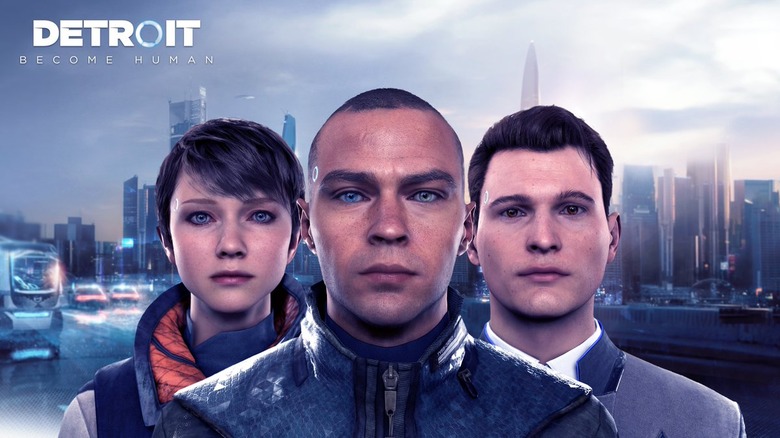'Detroit: Become Human' Review: These Violent Delights Don't Always Have Violent Ends
Are we prepared for the day our machines demand equal rights? This is the question that Detroit: Become Human, the latest game from Quantic Dream, poses to everyone who plays it. At some point, director David Cage and his writing team suggest, the singularity will arrive and it will be up to the intelligent machines how they want to proceed. Will they go to war with us, the ones who have treated them like objects for decades? Or will they march peacefully upon city streets, following in the footsteps of countless peaceful movements throughout history?
These might sound like heavy questions, but perhaps the most shocking (and welcome) surprise of Detroit: Become Human is that it handles these philosophical questions rather deftly, all while telling compelling, entertaining stories about three individual androids that have wildly different goals.
In Detroit: Become Human, which takes place in the year 2038, androids have become a reality. The dream of owning a machine that looks indistinguishable from a human has come true, and countless Americans now have their own androids to run errands, clean their homes, make their meals, and accompany them everywhere they go.
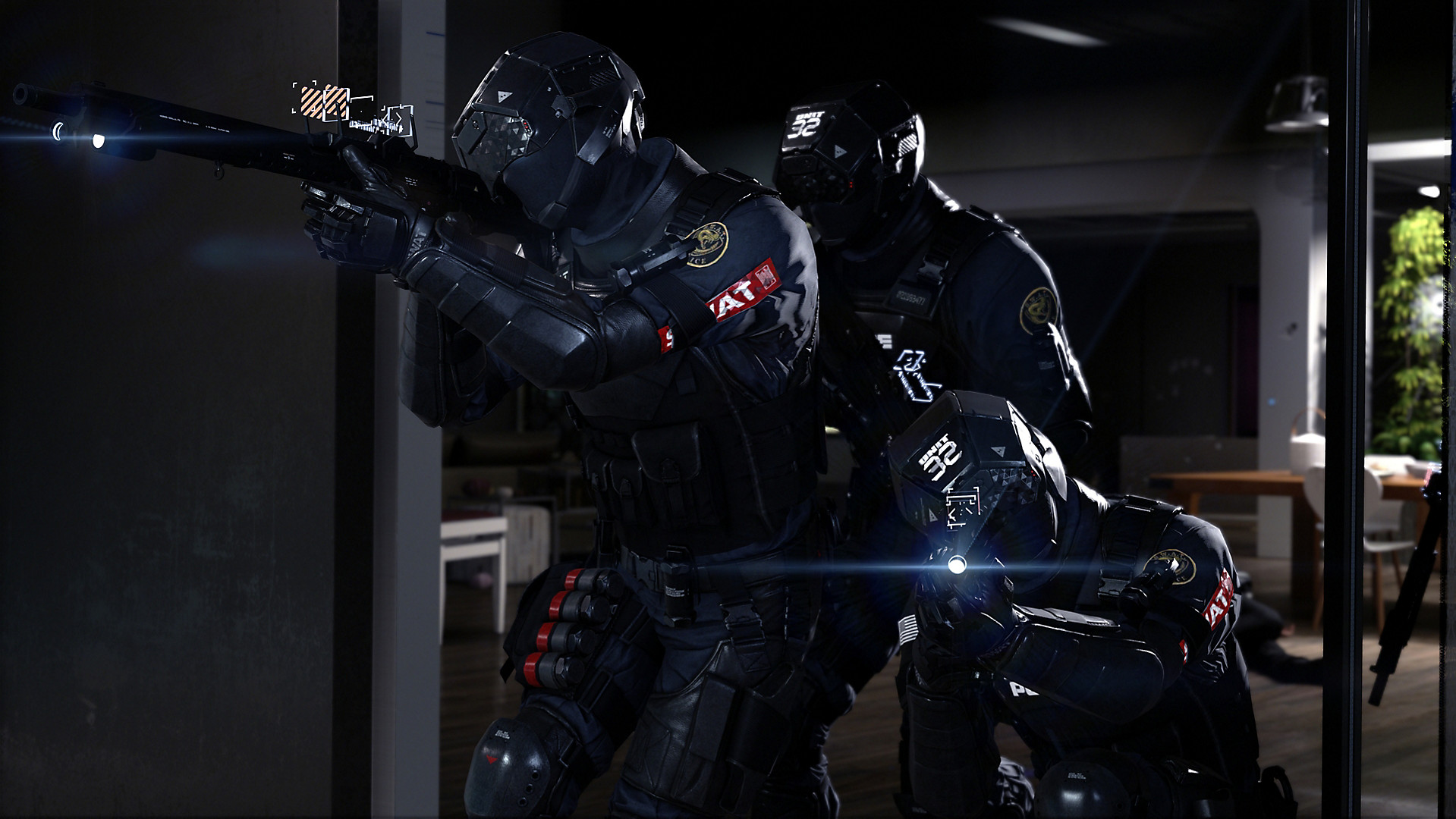
Like all of Quantic Dream's games, Detroit is a narrative-driven choose-your-own-adventure. Rather than running around an open world, battling enemies and collecting power-ups, Detroit asks you to make tough decisions in every chapter which could change the course of the story entirely. Your choices could even end the life of a character prematurely, and you'll have to play through the rest of the game without them.
Your actual interaction with the game consists of walking around small (but highly-detailed) areas and interacting with objects and people in the environment, choosing what to say and how to behave when talking to other characters, and completing quick-time events when the action picks up. Although Detroit is mechanically very simple, you should know going in that the narrative is what drives a Quantic Dream game, not the gameplay.
And yet, Detroit does an admirable job of making you feel like you're in control. Instead of just pressing X when approaching an interactive object, Detroit makes you perform specific actions with the controller, like turning the right thumb stick 90 degrees clockwise to open a drawer or holding down the L1 and R2 button while mashing X to climb up the side of a hill. Your mileage may vary, but these touches helped to keep me engaged as I moved throughout the world, and most of them became second-nature within an hour or so of playing.
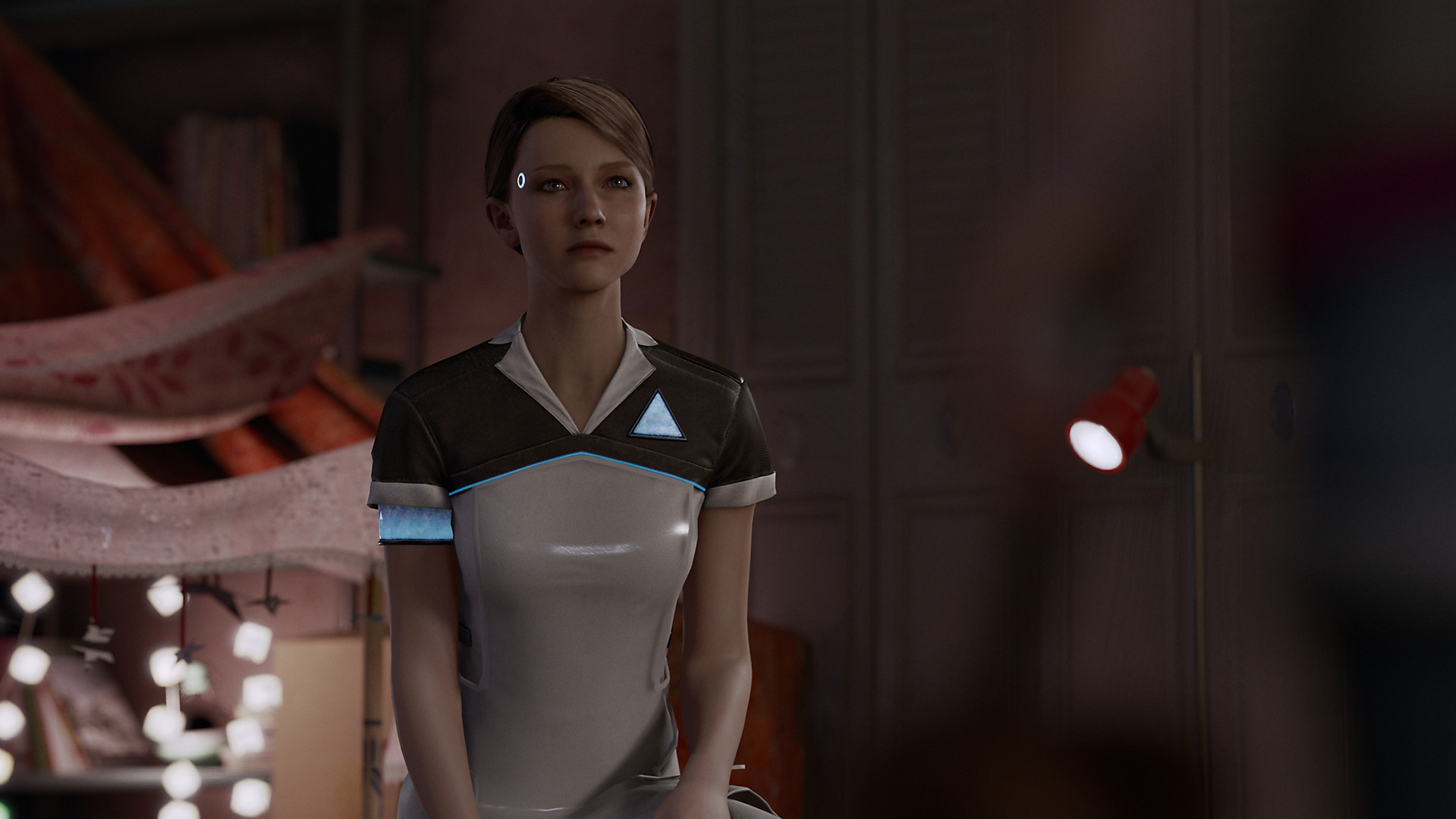
Of course, the entire experience hinges on whether or not the story works, and although it might not have totally stuck the landing (at least when it came to the ending that my choices led to), Detroit is certainly one of the better versions of this story I've seen in modern media. A lot of that boils down to the acting, which vacillates between tolerable and excellent depending on which group of androids you're following at the time.
I have to start with Kara, played by Valorie Curry, who I believe turns in the best performance of 2018, video game or otherwise. Her story begins just as she comes back online, having been previously damaged by her owner. After he comes to pick her up (like one might pick up their car from the shop), Kara returns home with him, at which point the player discovers that the man is a divorcee and a drug addict who abuses his daughter, Alice. With all of its ups and downs and twists and turns, Kara's story is as affecting and gripping as any in the game, and even when the game threatens to step over the line, Curry's performance consistently grounds it, compelling the player to push forward. Put simply, I don't think Detroit: Become Human works without Valorie Curry.
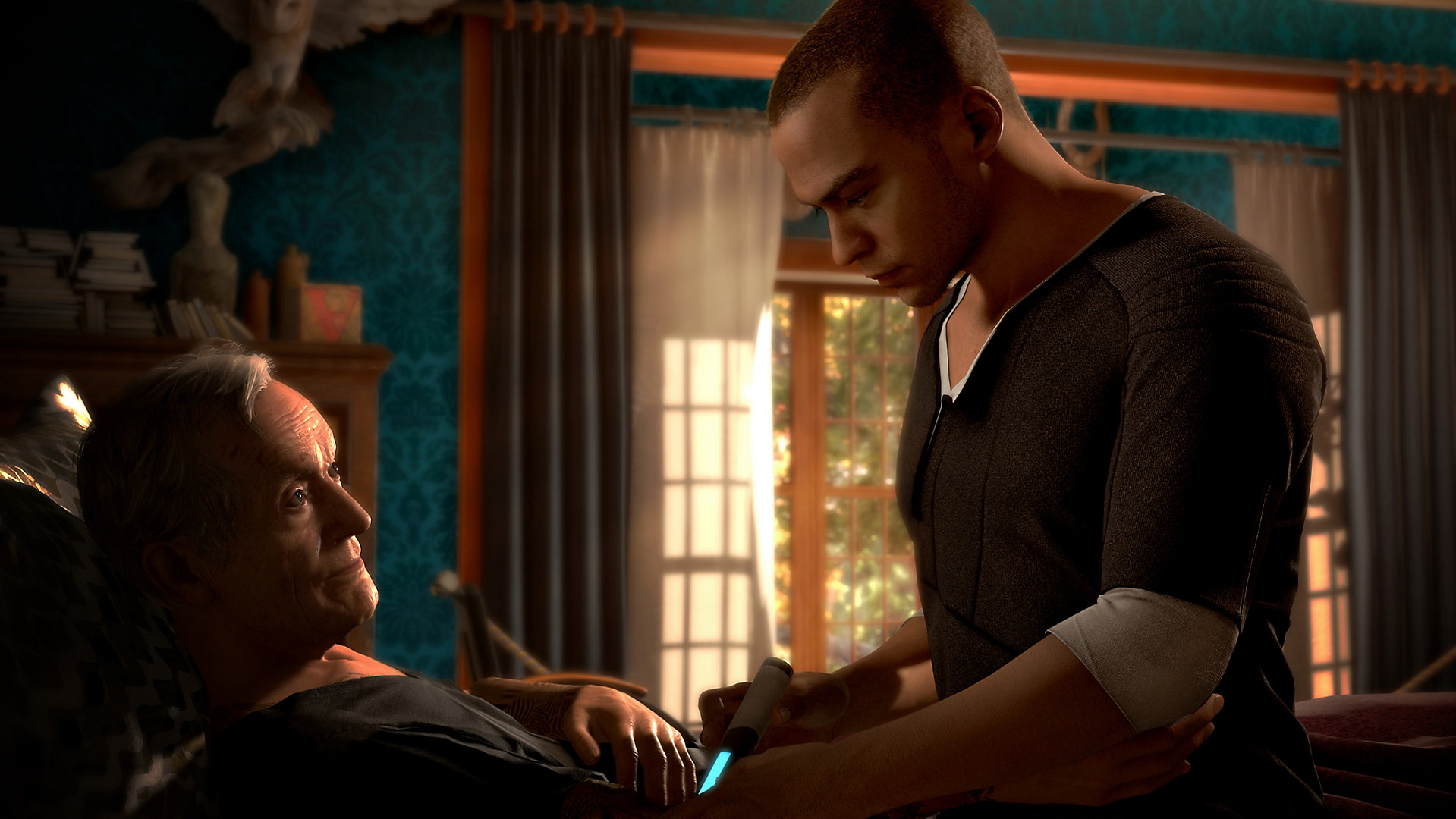
But the first character we meet is a very different kind of android — a prototype police android named Connor that has been tasked with solving the mystery of the deviants. Deviant androids are those that have broken out of their programming and have begun to show signs of human emotion. And although there have always been isolated incidents, a pattern has started to develop in recent weeks. Connor teams up with Lieutenant Hank Anderson to look into recent incidents, but wouldn't you know it: Hank hates androids. Their dynamic is rather predictable, but once again, the performances of Clancy Brown (Lt. Anderson) and Bryan Dechart (Connor) elevate what could have been two tried character tropes.
Finally we come to Markus, a caretaker android who stumbles his way to the frontline of the android uprising. If you've seen Westworld, you'll be all too familiar with his evolution from unknowing robot slave to thinking, feeling usurper, but unlike Westworld, you get to decide how Markus and those he ends up leading go about making themselves heard. Of the three threads, that of Markus (played by Jesse Williams) felt the most labored. But that's just the way that my adventure, with all of the choices I made along the way, played out.
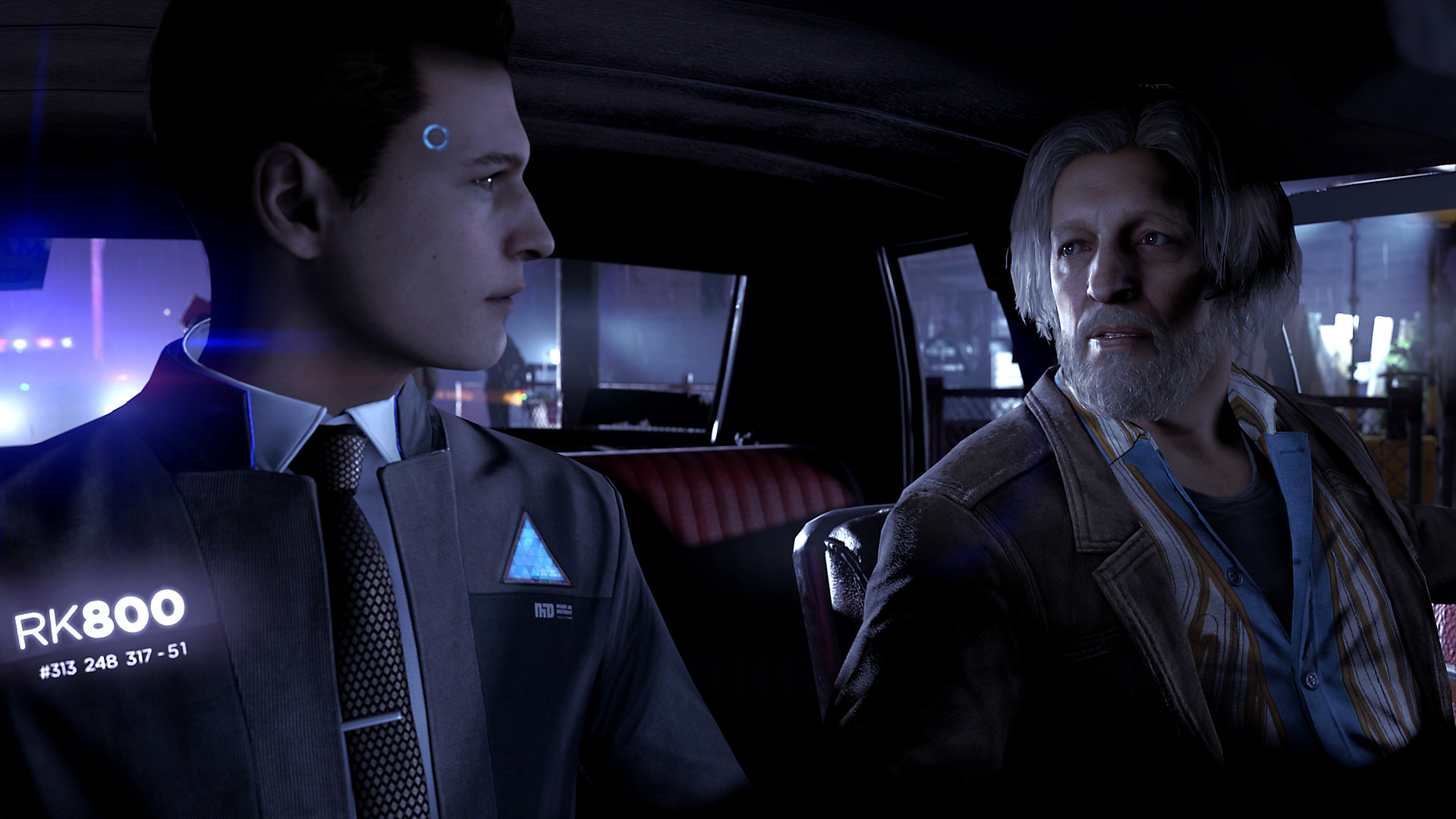
At any point, you can go back and replay any scene, taking different paths to see how the story might be affected. Detroit encourages multiple playthroughs, and no matter how you choose to advance your first time through, you won't be able to see everything. That said, Detroit does provide a complete, lengthy experience the first time through, even if you never go back to find out what you missed. But chances are that you'll want to go back, especially when you see the branching flowchart at the end of every chapter that shows all the paths you could have taken (without spoiling what would have happened if you'd done so).
Aside from some occasionally janky controls, a few rare quick-time event malfunctions, and a bug that temporarily desynced the audio from the on-screen action, Detroit is technically a very impressive game as well. The animation is often great (which is vital for a narrative game like this), future Detroit is colorful and beautifully imagined, and the scope of the game is massive, with setpieces that feel ripped straight out of an action movie.
Detroit: Become Human is Quantic Dream's best game, and features one of the best branching narratives ever to appear in a video game. Some of the twists felt a bit contrived, and the ending (my ending, anyway) overstayed its welcome, but for all its ambition, the fact that Detroit works at all is genuinely stunning.
Sony provided BGR with a copy of Detroit: Become Human on the PS4 for the purposes of this review.
